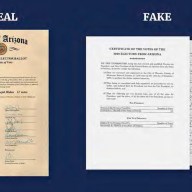By Scott Malone
MARSHFIELD, Mass. (Reuters) – Ocean Street in the waterfront Massachusetts town of Marshfield was littered with lobster traps, downed wires and chunks of houses on Wednesday, after a massive blizzard hammered New England. Notably absent was much of the 2 feet (30 cm) of snow that blanketed much of the Boston area, since for much of the storm, Ocean Street was under water because of flooding from a breached sea wall. About a dozen homes were badly damaged. “This area sees flooding regularly, but we haven’t seen damage like this since the blizzard of ’78,” town planner Greg Guimond said as he surveyed the wreckage. “The problem was the sustained wave action; the houses can’t handle it.” Millions across Massachusetts, Connecticut, Rhode Island and New York were digging out on Wednesday from the storm, which dumped up to 3 feet (90 cm) of snow in places, though it largely bypassed New York City. Schools remained closed in Boston and most of its suburbs for a second straight day but life was otherwise returning to normal with the city’s transit system and airport resuming service and a travel ban lifted. But the recovery in the ocean-facing section of Marshfield was far from seamless on Wednesday, with many homes without power and coated in ice. Residents who rode out the storm said they had relied on fireplaces to keep warm. Further up the coast, Governor Charlie Baker met with officials in Scituate, which also reported flood damage and where roads were blocked by a mix of snow and water-borne debris that had blocked access to some homes without power. Baker said he would order additional state heavy equipment into the region to help with cleanup.
“There is so much snow and other activity associated down here with that storm that their resources and their assets are pretty much flat out,” Baker told reporters in Scituate.
Tim Mannix, whose Marshfield house was pounded by waves after the seawall failed, watched a front-end loader clear debris away from the front of the building. His face was badly bruised and marked by a long line of stitches above his nose after waves knocked a sliding glass door on him. “Thankfully it was a fast-moving storm, just one tide,” the 58-year-old fisherman said. “Imagine what it would have been like had it stayed around.”
‘WORSE AND WORSE’
As he surveyed the damage in Marshfield while walking his dog, 67-year-old Donny Boormeester said the storm was the worst he had experienced since moving to the town in 1969.
“Every year, the storms get worse and worse,” the retired produce buyer said. “The water gets closer to the houses.”
He said the streets near his home flooded twice a year in recent years, an estimate his neighbors agreed with.
“It used to be a novelty,” Boormeester said.
Increased flooding is a problem up and down the New England coastline that has been exacerbated by rising sea levels, said Cameron Wake, director of the University of New Hampshire Climate Change Research Center. “Places that used to not flood are getting flooded now and the reason is not because we didn’t have hurricanes or Noreasters in the past,” Wake said. “The reason is because sea level has risen and so for any given storm surge we’ve added an extra foot of sea on top of that. It doesn’t make a big difference until we see a big storm and we see systems fail that haven’t failed in the past.” Marshfield is looking for other ways to protect homes from flooding, including seeking Federal Emergency Management Agency funding to help raise other houses above potential floodwaters.
“We just had a meeting with FEMA on Thursday about elevation grants,” Guimond said of the talks held last week.
The severe weather claimed the lives of at least two people, an 80-year-old man who collapsed and died while shoveling snow in Trumbull, Connecticut, on Tuesday and a teenager who died while snow-tubing outside New York City on Monday. (Additional reporting by Elizabeth Barber in Boston, Suzannah Gonzales in Chicago and Curtis Skinner in San Francisco; Editing by Lisa Von Ahn and Bernard Orr)


















